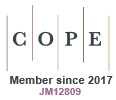Yarning up with Doc Reynolds: an interview about Country from an Indigenous perspective
Doc Reynolds A and Liz Cameron B *
B *
A
B
Abstract
This article uses Yarning with Country as a methodological approach where Country plays a pivotal role as an active participant. Our focus is on examining how we learn from and establish respectful, reciprocal, and accountable relationships with Country, as told through the eyes and experiences of knowledge holders, in this case, Doc Reynolds. The knowledge shared about the importance and meaning of Country contributes to advancing ecological-research methodologies to better acknowledge and learn from Indigenous knowledge systems, offering insights into sustainable practices and community engagement within landscapes. This body of knowledge serves as an invitation for Australians to reconceptualise Country, envisioning it both as a noun and a verb. As a noun, Country represents the physical landscape and environment, imbued with cultural significance and history. As a verb, it highlights the dynamic and interactive relationships that exist between people and their environment. This dual understanding encourages a deeper engagement with Country, that it is not merely a backdrop for human activity but a living entity that requires care, respect, and ongoing dialogue.
Keywords: biodiversity, Caring for Country, culture, Indigenous, Yarning.
References
Bowman DMJS, Balch JK, Artaxo P, Bond WJ, Cochrane MA, D’Antonio CM, DeFries R, Johnston FH, et al. (2011) The human dimension of fire regimes on earth. Journal of Biogeography 38(12), 2223-2236.
| Crossref | Google Scholar | PubMed |
Cameron L (2020) ‘Healthy Country, Healthy People’: Aboriginal Embodied Knowledge Systems in Human/Nature Interrelationships. The International Journal of Ecopsychology 1(1), 3.
| Google Scholar |
Cooke P, Fahey M, Ens EJ, Raven M, Clarke PA, Rossetto M, Turpin G (2022) Applying biocultural research protocols in ecology: insider and outsider experiences from Australia. Ecological Management & Restoration 23(S1), 64-74.
| Crossref | Google Scholar |
Geia LK, Hayes B, Usher K (2013) Yarning/Aboriginal storytelling: towards an understanding of an Indigenous perspective and its implications for research practice. Contemporary Nurse 46(1), 13-17.
| Crossref | Google Scholar | PubMed |
Hughes M, Barlo S (2021) Yarning with country: an indigenist research methodology. Qualitative Inquiry 27(3–4), 353-363.
| Crossref | Google Scholar |


